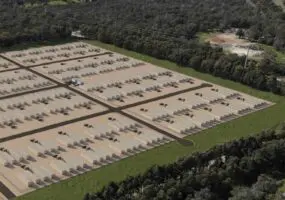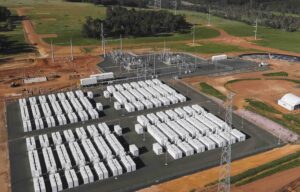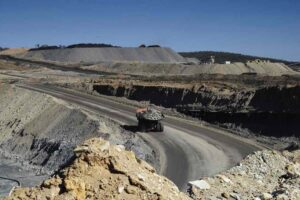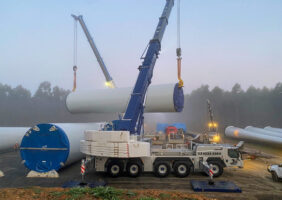A University of Wollongong-based project to test a comparable, low-cost alternative to lithium-ion battery storage – sodium-ion battery packs – is underway, after commissioning of the project was completed this week.
The $10.6 million Smart Sodium Storage System (S4) Project will examine how sodium-ion batteries can be used to store renewable energy and increase system resilience through self-generation, storage and consumption of energy on site.
The test will be carried out at Sydney Water’s Bondi sewage pumping station, an enormously energy-intensive facility that moves huge daily volumes of wastewater, and will also prove the technology against highly intermittent and impulse-heavy loads.
Initially, the largely ARENA-funded system, designed by the UOW’s Institute for Superconducting and Electronic Materials (ISEM), will include 6kW of solar, a temporary lithium-ion battery pack and an energy management system.
The lithium-ion batteries will be used for one year to test the energy management system and then replaced with the sodium-ion batteries – produced by the project’s China manufacturing partners – in late-2019.
The system will generate approximately 8,000 kilowatt-hours of energy each year – significantly more than is required to run the site.
The UOW says the project comes at “critical phase” in the development of sodium-ion battery packs, with the first batches rolling off production lines at partner sites in China.
ISEM director, Professor Shi Xue Dou said sodium-ion batteries were a potential game-changer, being made up of materials much more abundant – and thus cheaper – than those used in traditional lithium-ion batteries.
“Critically, this project will deliver commercial-scale and ready-for-manufacture sodium-ion battery technology that allows lower-cost distributed renewable energy supply to become a reality,” Professor Dou said.
ARENA, meanwhile, said that helping to deliver of secure and reliable battery technology was one of the Agency’s key roles, in the effort to make renewable energy “dispatchable.”
“Thanks to the contribution of world-leading researchers from the University of Wollongong, these relatively inexpensive and reliable sodium-ion batteries aren’t too far off, potentially reducing our reliance on lithium,” said ARENA CEO Darren Miller.
“We’re always excited to support significant R&D which shows promising commercialisation prospects as the novel sodium-ion technology will assist in the faster uptake of renewable and innovative storage solutions for Australia,” he said.
UOW says the commissioning of the renewable energy generation system at the Bondi sewage pumping station coincides with the launch of a new S4 Project website, which contains key information about the project and deliverables – s4.isem.uow.edu.au.
Partners in the S4 Project include: ARENA, the University of Wollongong, Liao Ning Hong Cheng Electric Power Co., Hebei ANZ New Energy Technology Co., McNair Technology Co., and Sydney Water.











